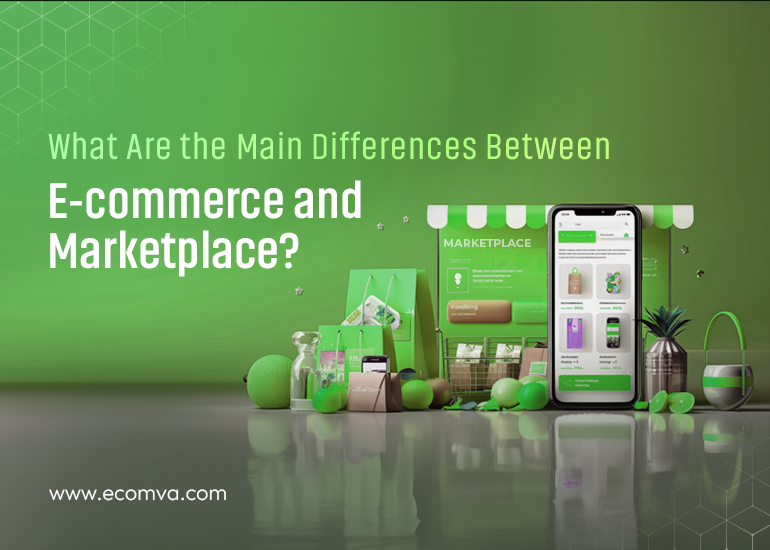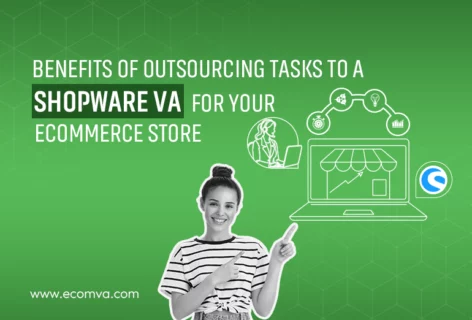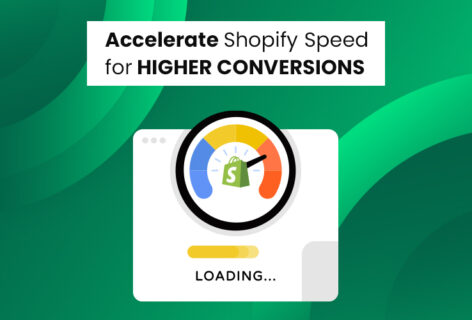What Are the Main Differences Between Ecommerce and Marketplace?

“The battle between Ecommerce platforms and online marketplaces isn’t just about selling—it’s about strategy.”
This quote highlights the critical decision every entrepreneur faces today. Choosing the right model for your business isn’t just a technicality—it’s the backbone of your growth strategy.
Did you know that by 2026, Ecommerce sales are projected to reach $8.1 trillion globally? This booming growth underscores the importance of selecting the right platform.
Ecommerce platforms and online marketplaces are reshaping the way businesses operate. While Ecommerce platforms offer full control, online marketplaces provide access to massive audiences. For example, Ecommerce platforms empower businesses to build unique brands, whereas marketplaces excel at providing instant exposure. Understanding these differences will influence customer experience, revenue potential, and operational control. Your decision also determines how effectively you leverage marketplace management and Ecommerce store management services to streamline online store management.
When to Use Ecommerce vs Marketplace?
Choosing between Ecommerce platforms and marketplaces depends on various factors, including business goals, audience preferences, and product offerings. Let us break it down i.e., discuss Ecommerce vs marketplace in detail:
1. Business Goals
What do you want for your business? If you value control and customization, Ecommerce platforms are the way to go. They allow you to design everything from branding to operations. If your goal is variety and reaching a large audience quickly, online marketplaces are ideal. Marketplaces advantages include their ability to connect you to millions of shoppers.
2. Target Audience
Think about your customers. If they prefer unique and specialized products, an Ecommerce platform will meet their needs. These platforms give you the tools for precise targeting and branding. For customers who value convenience and variety, online marketplaces provide an unmatched shopping experience. Marketplace management tools can help you cater to a broader audience effortlessly.
3. Product Offering
The type of products you sell matters. Ecommerce platforms shine when your offerings are niche or require a personal touch. They give you room to showcase your brand’s uniqueness. If you have a diverse or general inventory, online marketplaces will work better. Wide-ranging products are handled seamlessly, ensuring that buyers find what they need.
4. Control and Flexibility
How much control do you need? Ecommerce platforms offer full control over your store. From Ecommerce or online store management services to shipping policies, you make the decisions. In contrast, online marketplaces reduce the burden of operations. You follow the platform’s structure, making it easier to manage but limiting flexibility.
5. Revenue Streams
Think about your income. Ecommerce platforms usually mean higher profit margins. You avoid commissions and can create multiple revenue streams through subscriptions, upselling, and more. Online marketplaces make revenue generation simpler but involve fees. Marketplace management ensures that the process is streamlined, but your margins may shrink.
How Do Ecommerce Platforms Work Compared to Marketplaces?
Ownership and Control
Ecommerce platforms provide complete ownership. You control your website, branding, and customer data. This level of autonomy allows you to customize everything to match your vision. It also ensures that your brand stands out.
Online marketplaces, on the other hand, operate differently. They own the platform, set the rules, and manage customer interactions. You have limited say in marketplace management. However, this setup simplifies the selling process for you.
Transaction Processes
Transactions on Ecommerce platforms are straightforward. Payments go directly to you after deducting small processing fees. You decide how the checkout flow works. This is one of the key Ecommerce advantages.
In contrast, online marketplaces handle payments for you. They deduct commissions and transfer the remaining amount. This process streamlines operations but reduces your earnings per sale. Marketplace management also involves dealing with platform-specific payment policies.
User Experience
Ecommerce platforms shine in delivering tailored user experiences. You can create a unique shopping journey for your customers. This includes personalized recommendations and seamless navigation. These features enhance customer loyalty.
Online marketplaces standardize the experience. Customers browse listings from multiple sellers. While this setup ensures simplicity, it limits your ability to differentiate your brand. That said, marketplaces’ advantages include easy navigation and trust-building through a unified interface.
Customer Experience in Ecommerce and Marketplaces
Branding and Identity
Your Ecommerce platform tells your story. From colors to fonts, every element reflects your brand’s personality. Customers recognize and connect with your unique identity. This connection builds loyalty and sets you apart. In online marketplaces, the platform’s brand dominates. Your store is just one among many. This can dilute your identity but provides instant credibility for new sellers.
Customer Service
Ecommerce platforms let you take the wheel. You manage queries, returns, and complaints directly. This control ensures consistency and better customer satisfaction. In marketplaces, customer service operates under the platform’s policies. They often mediate disputes and dictate resolutions. This reduces your workload but limits how you handle buyer concerns.
Shopping Experience
Ecommerce platforms create immersive experiences. You customize the layout, features, and navigation. This personalization enhances user engagement. Marketplaces focus on simplicity and consistency.
Shoppers find a familiar interface across all stores. While this appeals to convenience seekers, it restricts your ability to stand out. Yet, marketplaces’ advantages include broader accessibility for diverse customers.
Marketing Strategies for Ecommerce vs Marketplace
Traffic Generation
Driving traffic is the lifeblood of any online business. With Ecommerce platforms, you create strategies like SEO, PPC ads, and email campaigns to attract visitors. These methods require effort but give you complete control over the audience you target.
For online marketplaces, the platform’s existing user base does the heavy lifting. You benefit from the marketplace’s traffic, but you must still optimize your listings to stand out.
Promotional Techniques
Promotions on Ecommerce platforms are as flexible as your imagination. Offer flash sales, bundle deals, or loyalty rewards—the choice is yours. This freedom is one of the top Ecommerce advantages.
Online marketplaces, however, restrict promotional options. You use tools provided by the platform, like sponsored product ads or discounted pricing during sales events. While simpler, this limits how you can market creatively.
Customer Engagement
Building relationships with customers is key to long-term success. On Ecommerce platforms, you nurture this connection through personalized outreach, newsletters, and rewards programs. These efforts foster loyalty and repeat business.
In online marketplaces, customer engagement revolves around reviews and ratings. Positive feedback improves visibility, but building direct relationships is more challenging due to platform restrictions.
Pros and Cons of Ecommerce vs Marketplace
Ecommerce Platforms
- Pros: You have full control over every aspect of your business. This includes branding, pricing, and customer interactions. Higher profit margins are a key Ecommerce advantage. Your store stands out with unique features and design.
- Cons: Initial costs can be steep. Building a platform requires investment in design, hosting, and maintenance. The setup process can feel complex without expert guidance or Ecommerce store management services.
Marketplaces
- Pros: Entering the market is simpler. You tap into an existing audience without the need for heavy promotion. The reduced initial investment makes it appealing for startups. Marketplaces advantages also include their user-friendly structure and pre-existing trust with buyers.
- Cons: Control over your store is limited. The marketplace dictates policies, pricing, and branding. The competition is intense, as many sellers offer similar products. Marketplace management fees and commissions eat into profits.
Comparison Table
| Feature | Ecommerce Platforms | Online Marketplaces |
|---|---|---|
| Pros | Full control over branding | Easier entry |
| Higher profit margins | Access to a large audience | |
| Tailored customer experiences | Minimal upfront investment | |
| Cons | Higher upfront costs | Less control over operations |
| Requires technical setup | Competitive and crowded environment | |
| Marketing is entirely your responsibility | Commission fees |
Conclusion
Thus, comprehending the key distinctions, especially between Ecommerce platforms and marketplaces is essential for making informed business decisions. Ecommerce platforms give you full control, allowing for a tailored customer experience and unique branding. In contrast, online marketplaces provide easier entry and access to a ready-made audience, making them ideal for quick scalability.
When choosing the right model, assess your goals and resources carefully. If you value autonomy and higher profit margins, an Ecommerce platform is the way forward. On the other hand, marketplaces work best for those seeking simplicity and immediate exposure. Remember, success lies in effective marketplace management or leveraging Ecommerce store management services to optimize your operations.
For more tailored insights, explore our blog: Benefits of Ecommerce Management Services.
These resources will help you align your strategy with your business objectives.
FAQs
1. Which model suits new businesses better: Ecommerce platforms or marketplaces?
New businesses often find marketplaces more suitable. They provide access to a large audience and require minimal setup. However, if you aim for long-term branding, Ecommerce platforms could be a better investment.
2. What are the hidden costs of selling on marketplaces?
Marketplaces charge commission fees, listing fees, and promotional costs. While these may seem small initially, they can significantly impact profit margins over time.
3. How does branding differ in Ecommerce vs marketplace?
Ecommerce platforms allow for complete brand customization. From logos to layouts, everything reflects your identity. In marketplaces, your branding takes a back seat to the platform’s overarching identity.
4. Are marketplaces suitable for small businesses?
Absolutely. Marketplaces provide small businesses with easy entry and access to a broad audience.
5. How do I decide between Ecommerce and marketplaces?
Assess your goals, target audience, and resources. Each model serves different priorities, so pick what aligns best with your strategy.











